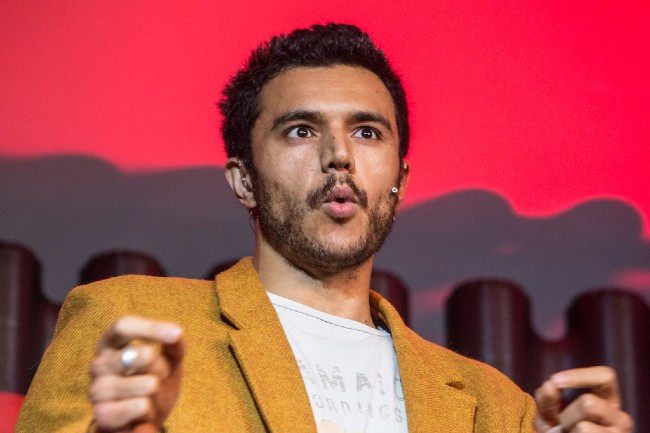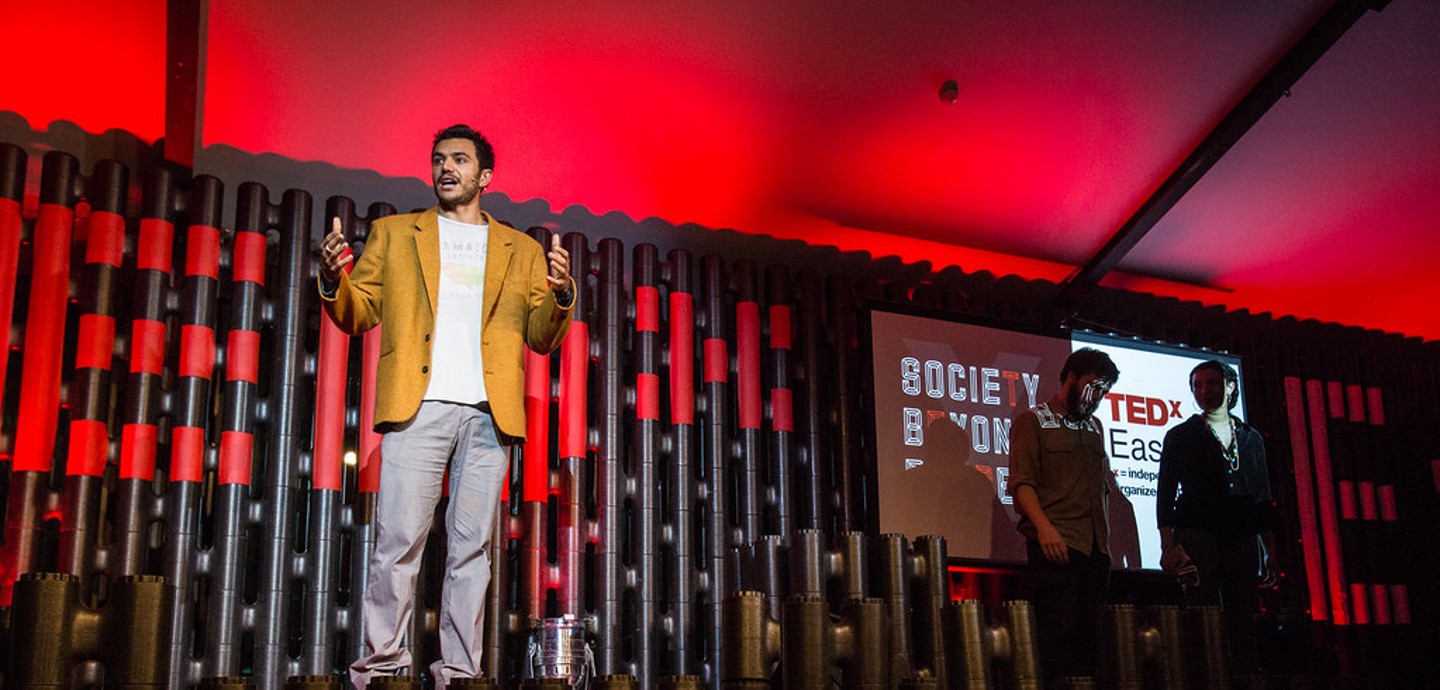2 May 2022
To mark Deaf Awareness Week beginning on 2 May, we’re sharing our interview with award-winning poet Raymond Antrobus, which was previously published in Bulletin, our members’ magazine.
Raymond explores the ways we communicate with each other in his work, drawing on his deaf experience and Jamaican-British heritage.
For readers who are unfamiliar with your poetry, how would you describe it?
I write mainly narrative and lyric poems that are essentially investigations of missing sounds. I write poems and essays and children’s books, which all find a place under that mission.
You describe yourself as an educator as well as a poet. What was your experience of the education system and how did it lead you into teaching?
I had a difficult education – my deafness wasn’t diagnosed until the age of six. At that age I didn’t know what I was missing. From the age of 11 I went to a school for deaf children where there were individual teachers who were brilliant. I was lucky – they saved my life. Hearing teachers previously had a habit of speaking to me s-l-o-w-l-y, which was confusing and embarrassing at the time.
In 2010 I won an international slam poetry* competition. The prize was a trip to Chicago – the capital of slam poetry – where I got to perform on stage. Another poet there took me to a high school in downtown Chicago where an after school poetry club was underway. I walked in and there were about 50-60 teenagers all sat around writing poetry. Up until that point poetry for me had been a thing you did on your own. I’d no idea that you could have a creative community around it and that it could be nurtured in school. That blew my mind! The teacher, Peter Kahn, got the pupils to show me their poems and give them feedback. It was incredible.
Two years later Peter showed up in London where he’d helped to set up a spoken word education MA programme at Goldsmiths University. We met and he said ‘How would you feel about training to be a teacher? I think you’d be good at this.’
I’d left school without GCSEs and didn’t think I’d be allowed to do an MA. Peter told me, ‘I believe in you, I see something in you’. I had to sit some tests to get on the course and, two years later, I passed my MA with a distinction and went on to become a spoken word educator at two schools in East London and the North London deaf school I went to as a pupil. I did that for four or five years and am on the periphery of teaching now, although I still do poetry residencies in schools.
[*Slam poetry is a form of spoken word poetry combining elements of performance, writing, competition and audience participation.]
As well as writing poems in standard English, you also incorporate British Sign Language and closed captions in your work. Can you say a little about the reasons for that?
At school they assumed I had dyslexia as my reading and writing were below the expected level for my age [the result of his deafness being discovered late]. I was struggling and was borderline literate. I realised at school that language impacts the way that one is seen and understood.
Years later I started writing and performing poetry. In the literary world there is a hierarchy of language, full of narrow assumptions about what language is and what purpose it serves. In the UK the written word is valued most – it’s a highly privileged thing, whereas the spoken or signed word is seen as somehow more primitive and not intellectual. In my mind I never privilege one form of language over another, but the culture does. These prejudices are harmful and I take that personally.

In your last collection of poetry, The Perseverance, you give thanks to the SLTs you’ve known. What role did SLTs play in your life?
As a child I was referred to audiologists and SLTs at The Donald Winnicott Centre. I always felt at ease there – it’s where I went to have my hearing tests and get my hearing aids fitted. [Unlike school], it didn’t feel like I was going to be judged a failure. The experience was kind and grounding.
Because of my deafness, I had difficulties with my speech sound development, but nobody knew that was causing it. The SLTs introduced me to sounds I couldn’t hear, like ‘sh’ and ‘ch’. I spent quite a bit of time with them and really appreciated it as I got older.
In 2011 I was invited to record some poetry for a BBC radio programme. After I’d recorded a couple of poems, the radio producer took me to one side and was very critical of how my voice sounded. He said it sounded like I was slurring and how that wasn’t great because the radio mic could pick it up. He gave me a real complex about it and I ended up dropping out of the programme. Instead I checked myself back into speech and language therapy. The SLT I saw really helped me get my confidence back. She redid the tests I’d had done as a child, reassured me that I sounded fine, and helped me to see that it was the radio producer who had the problem.
In the last issue of Bulletin, we carried a review of the children’s book you wrote, Can Bears Ski? Why did you decide to write a book for children?
It came about as a random opportunity. In 2017 I was performing at a literature festival where I read my poem Happy Birthday Moon, which was inspired by a book my dad read to me as a kid. There were some publishers in the audience and they came up to me afterwards to ask if I’d be interested in writing a book for children. Initially I said no, I just wanted to write poems. Then I did a residency back at my school for the deaf. I went into the library and saw there were no books that had deaf protagonists. That really rattled me. As an investigator of missing sounds, I’d seen the thing that was missing in the school and I knew I’d been given the opportunity to do something about it. So I got back in touch with the publishers and said, ‘I’m going to do this’. I ended up writing an adventure story, Can Bears Ski? which is loosely autobiographical. Polly Dunbar did the illustrations – she comes from a deaf family and fully realised what it was I was trying to achieve with the book.
As well as writing about your own experience of deafness, you also write poems that give voice to others’ experience of it. Why is it important for you to write about other figures in the deaf community?
Because I’ve lived it, I understood the link between deaf history and the persecution of deaf people. There’s an urgent need to bridge an understanding between disability, deafness, different needs and different ways of being with the mainstream imagination. In society there’s an assumption that deafness is a disadvantage and my experience is that’s not always the case. Being deaf has been one of my best privileges because it’s given me a useful perspective and one I can apply as a teaching poet.
Your work draws on your mixed heritage. What does it mean to you that your poem Jamaican British was added to the GCSE English syllabus?
When I was told Jamaican British was to be added to the GCSE syllabus I thought it was a joke. I’m really proud of that poem though, I wrote it while I was teaching in a school in Hackney. There was a group of disruptive boys in my class. Me and another poet teacher were always trying to get the class to focus. These boys were so intelligent and had so much to offer and we were always trying to get them to apply themselves. We found that if we were already writing when the boys arrived in class then they would respond well. I wrote the first draft of Jamaican British during one of those sessions and read it aloud at the end. The class loved it and asked to hear it again at our next session with them. These were 14-15 year old boys so I knew I was onto something good. The fact that that poem is now taught in school represents for me some kind of mystical poetic justice.
Some of your poems are written in Jamaican Patois. Is that reflective of your environment and experience alone, or is your intention to draw the reader into a conversation about whose language is heard/valued within arts and literature?
Exactly, there’s all of that at play. Poetry in the UK has an elite reputation. John Keats, one of the great Romantic poets, was from a working class background and wrote in Cockney. He was mocked by critics at the time for what they saw as his lower league language, but nowadays he’s revered. It’s interesting watching that appropriation of Keats and his working class roots. His own language was totally co-opted and made safe and accessible for white middle class English people, essentially. It’s why I feel an intense need to democratise and demystify poetry. Through teaching I’ve seen the positive impact that poetry can have in a classroom, and in prisons too where I’ve also done residencies. Classrooms are a place of ideas where language is shared and discussions can be had. I’ve had students of mine read their poems in parliament in front of policy makers. Poetry has that unique ability to connect us with our deepest humanity.
What’s next for you?
I’ve written a new kids book about siblings. I was living in Oklahoma for a while where there’s this big Elm tree known as ‘The Survivor Tree’. It stands on the site where the Oklahoma City bombing took place. At the tree you’re invited to think about conflict in your life and how to resolve or redefine it. One of the earliest and deepest conflicts I had was with my older sister. We had a fight that changed my life and I wrote about that experience while sitting by the tree. I got in touch with the publishers of Can Bears Ski? and they loved it, so I’m working on that, as well as something with my wife Tabitha who’s a photographer and art conservator. We’re collaborating on a book in which she takes a photo and I write a poem in response to it, in a kind of conversation.
Fast facts about deafness
- At least 50,000 children and 12 million adults in the UK are deaf
- An estimated 150,000 people in the UK use British Sign Language
- Hearing loss can lead to isolation, loneliness and depression
- Hearing loss can increase the risk of dementia by up to five times (though hearing aids may reduce the risk)
- People who are deaf may identify with and prefer to use a different term: ask people how they describe themselves
This article was originally published in the winter 2022 issue of Bulletin.
Images: “Raymond Antrobus @ TEDxEastEnd 2014” by TEDxEastEnd is marked with CC BY-NC-ND 2.0.
Deafness
Guidance, resources and opportunities to support you working with individuals who are deaf
Bulletin magazine
The UK’s foremost magazine for speech and language therapists
World Voice Day 2022: interview with Seb Coe
Interview with the former Olympian

